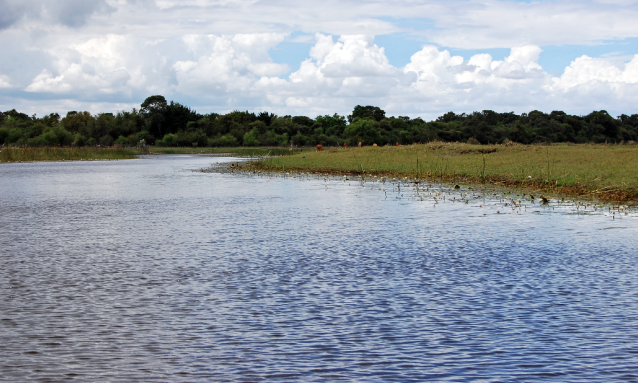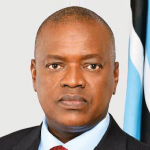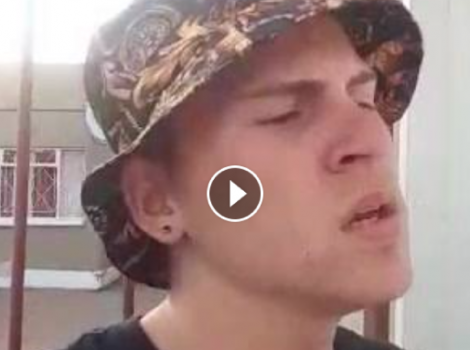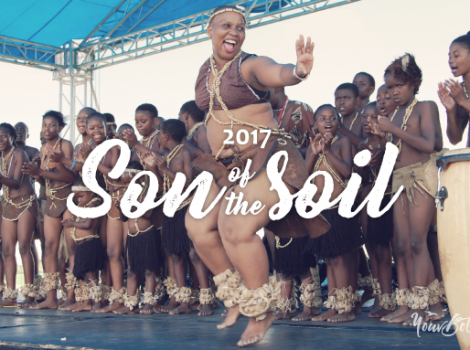At least 38,000 cattle and more than 200 hippos are stranded while some are reportedly dead at Lake Ngami in northwestern Botswana. This is attributed to El-Nino induced drought, which has hit the country in recent years. The lake was the first to feel the impact, resulting in cattle and wild animals dying in large numbers.
According to eye-witnesses, cattle and hippos are trapped in the mud while others have already died. The area, which is populated with both cattle and wild animals, has been the worst to be hit by the El-Nino induced drought this year.
Another area of concern in the northwestern part of the country is the Thamalakane River, which has since dried up, leaving scores of cattle and wild animals stranded. Acting Director of the Department of Wildlife and National Parks, Moemi Batshabang is quoted as saying that the drought is one of the worst that the Southern Africa sub-region has faced in recent years. The drought, he reportedly said, poses a danger to both wildlife and humans especially in the northern part of the country as it exacerbates the Human-Wildlife Conflict incidents.

“The greatest issue that we are facing is the drying up of the Okavango Delta, which has been providing water especially for the aquatic animals being the hippos and crocodiles,” Batshabang was further reported as saying.
Reports indicate that a lot of hippos were trapped in muddy waters in the Okavango Delta and rivers like Thamalakane which have dried up and the Department of Wildlife and National Parks was forced to rescue and relocate them. Batshabang said it is estimated that 200 hippos were trapped and they had to open water wells and pump water to help them.
“We had to open wells and pumped water into some ponds and had to translocate the 80 hippos and crocodiles from Thamalakane River to where there is water,” he said.
Recently, President Mokgweetsi Masisi said the government continues to put in place strategies to address agricultural challenges such as drought, pests and diseases. He has since declared 2018/2019 a drought year.

“I have directed the Rural Development Council (RDC) chaired by the Vice President to treat drought as a frequent occurrence. The RDC is in the process of validating a national strategy on drought, a framework that outlines the incorporation of drought mitigation measures in the national development agenda,” the President was quoted as saying.
He said the government aims to come up with farming initiatives to empower farmers to enable them to make Botswana food secure and reduce the import bill to acceptable levels. President Masisi said it needed more than just the government but also the farmers’ dedication, commitment and investment to turn around Botswana’s agricultural sector.
The government has since announced a 35 percent subsidy on livestock feed and supplements, an initiative which will run from June this year to June 30 next year.
Botswana resorts to exporting live cattle as drought bites
The Botswana government has decided to allow the export of live cattle in a bid to mitigate the impact of a devastating drought, an official said on Friday.
The Ministry of Agriculture spokesperson, Boikhutso Rabasha said the government has agreed to allow farmers to export live cattle for slaughter until the end of March 2020.
“Each farmer is allowed to export a maximum of 30 percent of his or her total herd. This decision is meant to assist farmers to avert the possible loss of cattle due to the severe impact of drought,” Rabasha said.
She said application forms for export can be obtained from the Department of Animal Production countrywide.
“To apply for the export permit, farmers should provide the following; a veterinary import permit from the country of destination and proof of livestock ownership,” Rabasha said.
Rabasha added that the livestock census results from the Botswana Animal and Traceability System would be used to confirm the number of livestock owned by each farmer. The government has since announced a 35 percent subsidy on livestock feed and supplements, an initiative running from June this year to 30 June 2020.
Meanwhile, the Botswana National Beef Producers Union said it plans to request an extension of the livestock subsidy until after the end of the drought period. Union secretary Abel Modimo said after their recent meeting with farmers that a resolution was taken to initiate a meeting with the government, as farmers believe that the drought situation would worsen.
Source: southerntimesafrica.com, apanews.net



